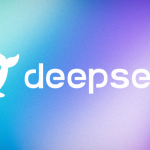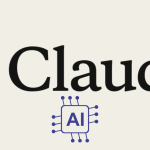In the rapidly advancing landscape of technology, the term “Doctrina AI” has emerged as a beacon guiding the ethical development and deployment of artificial intelligence (AI). This expansive article delves into the intricate details of Doctrina AI, aiming to unravel its complexities and shed light on its multifaceted impact on our daily lives.

Understanding Doctrina AI
Doctrina AI, an abbreviation for “Doctrine Artificial Intelligence,” is a comprehensive framework that encapsulates the principles, guidelines, and ethical considerations governing the use of AI. It serves as a compass for developers, policymakers, and stakeholders, providing a roadmap for the responsible creation and application of AI systems.
Importance of Doctrina AI
1. Ethical Considerations
At the core of Doctrina AI lies a profound emphasis on ethical practices in AI development. This extends beyond mere functionality, addressing concerns related to bias, fairness, and accountability in AI algorithms. The goal is to ensure that AI systems treat all individuals with equity, avoiding discriminatory practices.
Bias Mitigation
Doctrina AI acknowledges the omnipresent challenge of biases in AI systems. Biases can inadvertently seep into algorithms, leading to unfair outcomes. Developers under the guidance of Doctrina AI are tasked with implementing robust strategies for bias identification, rectification, and ongoing mitigation.
2. Transparency
Transparency is a cornerstone of Doctrina AI, demanding that developers create AI systems that are not shrouded in mystery. The goal is to make AI algorithms understandable and interpretable, fostering trust among users and stakeholders. Transparent AI systems are open to scrutiny, allowing for the identification of potential issues and fostering accountability.
Interpretability in AI
Doctrina AI encourages the development of interpretable AI models. This involves creating systems where decisions can be easily understood and traced back to the underlying processes, promoting transparency and trustworthiness.
3. Privacy Protection
Safeguarding user privacy is a paramount consideration in the realm of Doctrina AI. Guidelines mandate that developers implement stringent measures to protect user data from unauthorized access. Obtaining informed consent from users is not just a legal requirement but a fundamental ethical principle.
Data Security Measures
Doctrina AI calls for the implementation of robust data security measures. From encryption protocols to secure storage, developers are tasked with creating AI systems that prioritize the confidentiality and integrity of user data.
4. Human-Centric Approach
A distinctive feature of Doctrina AI is its human-centric approach. It advocates for the development of AI technologies that augment and enhance human capabilities rather than replacing them. This ensures that the integration of AI into various domains aligns with human well-being and societal values.
Human-AI Collaboration
Doctrina AI envisions a future where humans and AI collaborate synergistically. This collaborative approach seeks to harness the strengths of both, with AI acting as a supportive tool rather than a replacement for human decision-making.
Applications of Doctrina AI
1. Healthcare
The application of Doctrina AI in healthcare extends far beyond the development of diagnostic tools. It permeates into the very fabric of AI-guided decision-making, emphasizing ethical considerations in treatment recommendations and patient care.
Ethics in Medical AI
Doctrina AI ensures that medical AI adheres to ethical standards. This includes considerations for patient privacy, fair treatment recommendations, and the responsible use of sensitive health data.
2. Finance
In the financial sector, Doctrina AI plays a pivotal role in shaping algorithms for tasks such as credit scoring and fraud detection. This ensures that financial decisions are not only accurate but also free from biases that could disproportionately impact certain groups.
Fairness in Financial AI
The principles of Doctrina AI guide the development of fair and transparent financial AI systems. This involves continuous monitoring to identify and rectify biases in credit scoring models, promoting an equitable financial landscape.
3. Education
Doctrina AI influences the development of educational technologies, ensuring that they align with ethical standards. It facilitates the creation of personalized learning experiences while addressing concerns related to data security and student privacy.
Responsible EdTech
Doctrina AI principles guide the responsible integration of AI in education, emphasizing the importance of personalized learning without compromising the privacy and well-being of students.
Challenges and Future Directions
1. Bias Mitigation
While Doctrina AI addresses bias mitigation, the ongoing challenge lies in developing effective strategies for identifying, rectifying, and preventing biases in dynamic AI systems. Continuous research and development are essential to stay ahead of emerging biases.
Dynamic Bias Mitigation
Doctrina AI encourages the development of dynamic bias mitigation strategies. This involves creating AI systems that adapt and evolve to changing contexts, mitigating biases effectively over time.
2. Global Standards
The establishment of global standards for Doctrina AI is a complex task. Efforts are underway to create a common framework that ensures consistency in ethical considerations and regulations across different countries and regions.
International Collaboration
Doctrina AI promotes international collaboration to develop a cohesive set of global standards. This involves bringing together experts, policymakers, and stakeholders from diverse backgrounds to create a framework that transcends geographical boundaries.
3. Continuous Learning
AI systems are dynamic, continuously learning from new data and experiences. Doctrina AI emphasizes the need for ongoing monitoring and updates to ensure that AI systems evolve responsibly and ethically.
Lifelong Learning in AI
Doctrina AI encourages the adoption of lifelong learning principles in AI systems. This involves creating mechanisms for continuous learning, adaptation, and improvement, ensuring that AI technologies remain ethically sound throughout their lifecycle.
Conclusion
In conclusion, Doctrina AI stands as a beacon, guiding the ethical development and deployment of artificial intelligence. By addressing concerns related to bias, transparency, and privacy, Doctrina AI ensures that AI technologies contribute positively to various sectors while prioritizing human well-being.
As we navigate the intricate waters of AI, adherence to Doctrina AI principles becomes not just a responsibility but a cornerstone for building a future where AI aligns seamlessly with human values and societal ethics.






